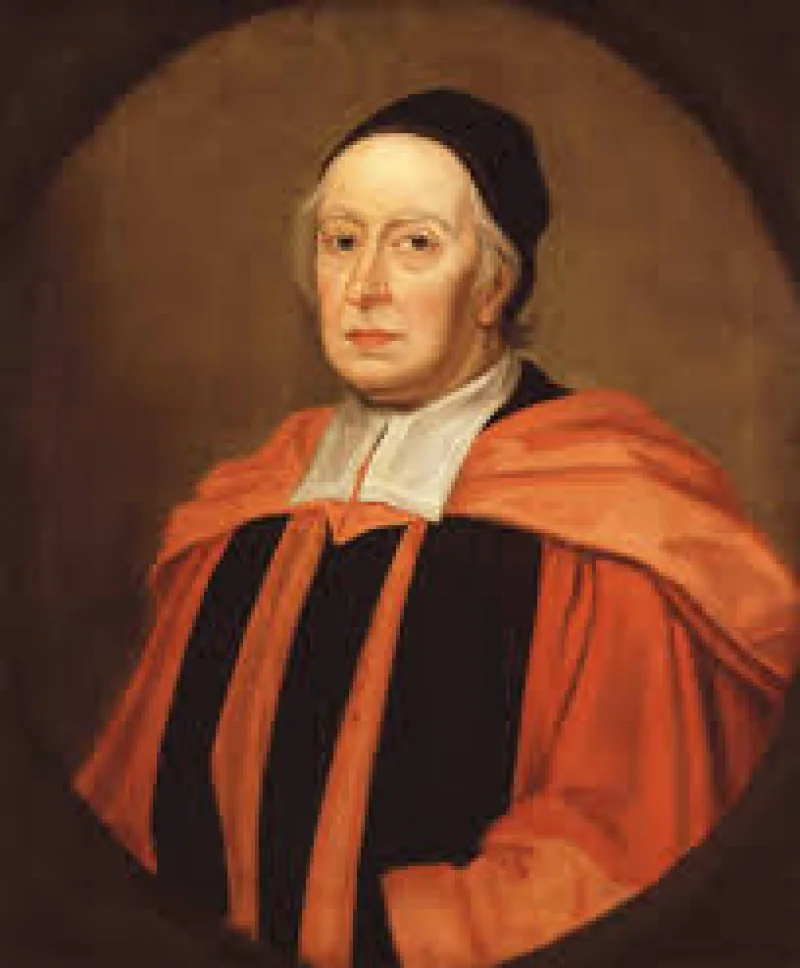Short Summary
John Wallis was an influential 17th-century English mathematician and clergyman, known for his significant contributions to the fields of mathematics and cryptography. He was instrumental in the development of calculus and is renowned for introducing the symbol ∞ for infinity. Wallis's work laid the groundwork for future mathematicians like Isaac Newton. He is also noted for his role in deciphering codes during the English Civil War, showcasing his diverse talents and interests.
Early Life & Education
John Wallis was born on November 23, 1616, in Ashford, Kent, England. He was the third of five children in a family supported by his father, Reverend John Wallis, a minister. Wallis displayed an early aptitude for languages and mathematics, which was nurtured by his education at Felsted School. He later attended Emmanuel College, Cambridge, where he initially studied theology. Despite this, his interest in mathematics continued to grow, influenced by the intellectual environment of the university and the mathematical works he encountered there.
Career Highlights
Wallis began his career as a clergyman, but his mathematical talents soon brought him recognition. During the English Civil War, he served as a cryptographer for Parliament, deciphering Royalist codes. In 1649, he was appointed as the Savilian Professor of Geometry at the University of Oxford, a position he held for over fifty years. His most notable work, "Arithmetica Infinitorum," published in 1656, was a groundbreaking text that introduced new ideas in the theory of infinitesimals and laid the foundation for integral calculus. Wallis was also a founding member of the Royal Society, contributing to its early development and success.
Major Achievements
- Introduced the symbol ∞ for infinity, which became a standard mathematical notation.
- Published "Arithmetica Infinitorum," advancing the study of calculus and infinitesimals.
- Played a crucial role in deciphering codes during the English Civil War.
- Contributed to the formation of the Royal Society, aiding in the advancement of scientific inquiry.
- Developed methods that influenced the works of later mathematicians like Isaac Newton.
Famous Quotes
- "I shall not fear to add that which now seems almost universally received."
- "Mathematics is the music of reason."
Interesting Facts
- Wallis was initially trained for a career in medicine before turning to mathematics and theology.
- He taught himself mathematics while working as a clergyman.
- He was known for his strong opposition to the Royalist cause during the English Civil War.
- Wallis had a keen interest in languages and was proficient in several, including Hebrew and Arabic.
Legacy / Influence
John Wallis's contributions to mathematics, particularly in calculus and infinitesimals, have had a lasting impact on the field. His work influenced the development of modern calculus and inspired mathematicians like Isaac Newton. The use of the infinity symbol ∞ is a testament to his lasting influence. Additionally, his role in the early Royal Society helped shape the course of scientific research and collaboration in England.
FAQ
Q: Why is John Wallis famous?
A: He is famous for his contributions to mathematics, particularly in calculus, and for introducing the infinity symbol ∞.
Q: What was his role during the English Civil War?
A: He served as a cryptographer for Parliament, deciphering Royalist codes.
Q: What was one of his major works?
A: "Arithmetica Infinitorum," which laid the foundation for integral calculus.













